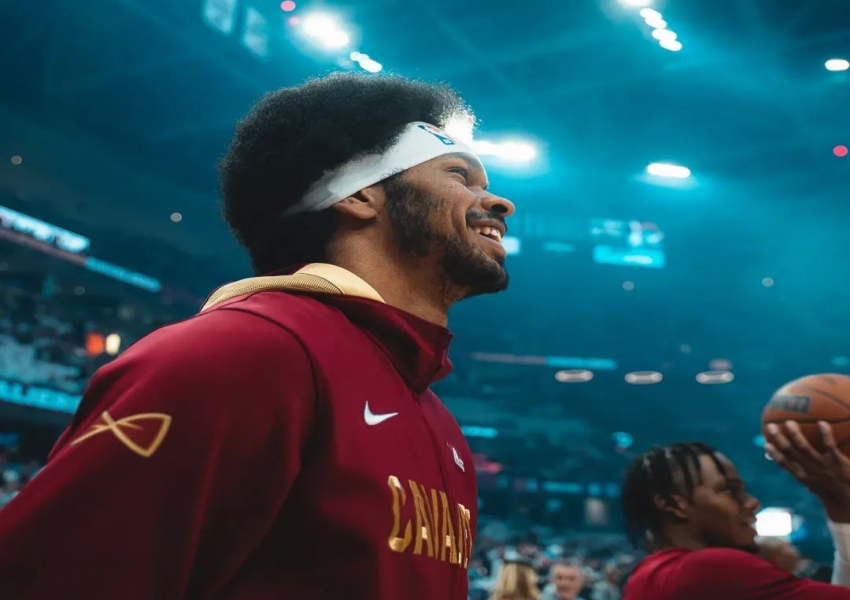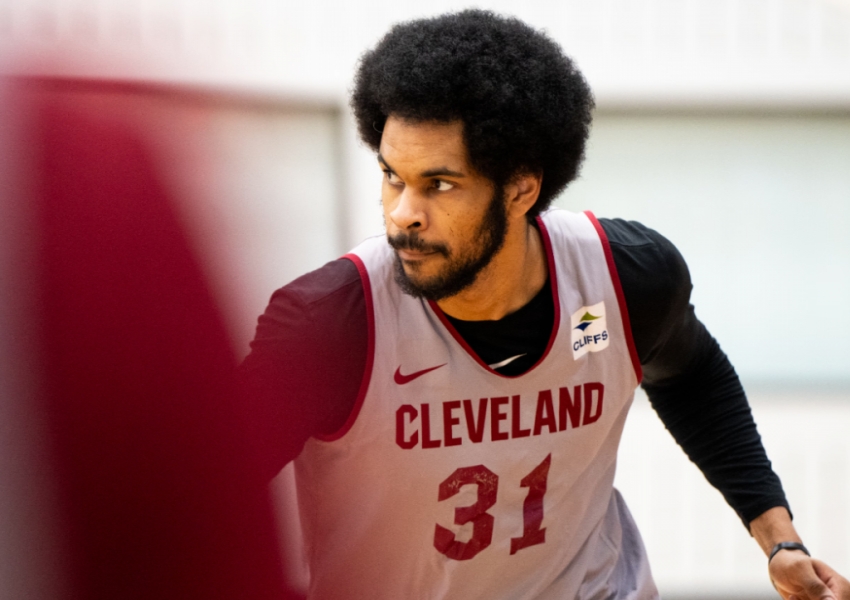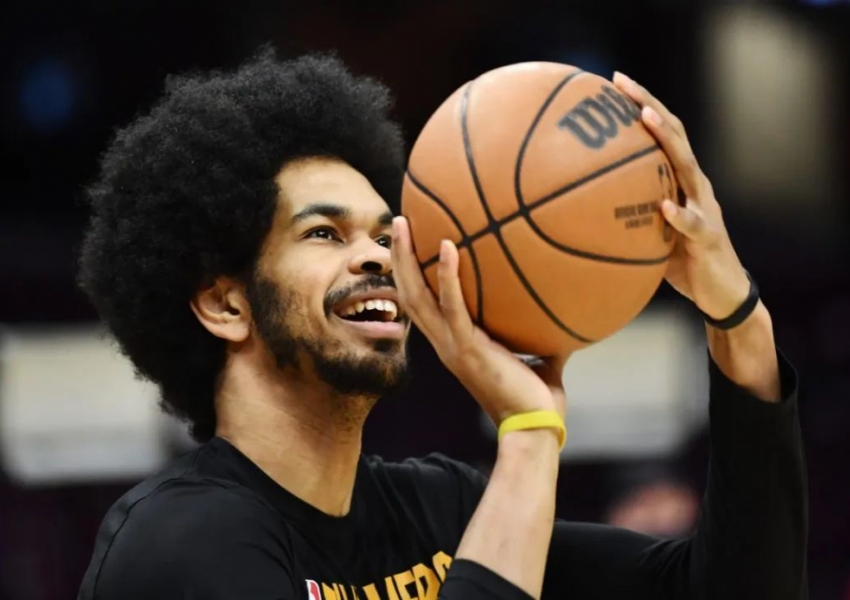$131 Million Over 5 Years! A Bargain Extension! How Long Can the Cavaliers' Big Four Last?
The Cleveland Cavaliers have made significant moves this offseason, solidifying their roster for the foreseeable future. According to a report from ESPN, Jarrett Allen has agreed to a three-year, $91 million extension with the Cavaliers. The contract will pay Allen $28 million in the 2026-27 season, $30.24 million in the 2027-28 season, and $32.48 million in the 2028-29 season. This new deal adds to his existing five-year, $100 million contract signed in 2021, which still has two years remaining, each worth $20 million. Over the next five years, Allen's total earnings will amount to $131 million, which many consider a bargain.

Last season, Allen played in 77 games for the Cavaliers, all as a starter, averaging 31.7 minutes per game. He posted impressive stats with 16.5 points, 10.5 rebounds, 2.7 assists, and 1.1 blocks per game, shooting 63.4% from the field and achieving a true shooting percentage of 66.4%. His rebounding prowess ranked him 10th in the league, with 3.2 offensive rebounds per game placing him 6th, and his shooting efficiency ranked 4th in the league, with a true shooting percentage of 19th.

Despite not having exceptional self-creation abilities, Allen exemplifies the modern functional big man, excelling in tasks like rebounding, setting screens, second-chance scoring, and defense. His impact on the game is evident, as he averaged 16.8 contests per game, reducing opponents' two-point shooting by 2.8% and three-point shooting by 2.6%. Within six feet of the basket, Allen contested 8.3 shots per game, lowering opponents' shooting percentage by 7.5%.

Allen's importance to the Cavaliers is reflected in team performance metrics. When Allen was on the court, the Cavaliers outscored opponents by 4.8 points per 100 possessions, compared to being outscored by 0.8 points per 100 possessions when he was off the court. His cumulative plus-minus of +201 was the third-highest on the team. Over the past two seasons, the Cavaliers have been a top defensive team, with the 2022-23 season's defensive rating being the best in the league, largely due to the defensive pairing of Allen and Evan Mobley.
Mobley, who recently signed a five-year, $224 million extension (potentially up to $269 million), contrasts sharply with Allen's three-year, $91 million extension. This discrepancy isn't due to the Cavaliers' unwillingness to pay Allen more but rather the constraints of his previous contract. According to extension rules, the new contract's starting salary can only be 140% of the final year's salary of the old contract. Thus, $91 million over three years is the maximum the Cavaliers could offer.
Let's take a closer look at the Cavaliers' offseason moves. They began by extending Donovan Mitchell with a three-year, $150.3 million deal, then locked in Mobley for five years, $224 million. Following that, they re-signed Allen for three years, $91 million, and previously, during the 2022 offseason, they had already secured Darius Garland with a five-year, $193 million extension. This effectively keeps their core quartet under contract at least through the 2026-27 season.
Additionally, the Cavaliers aren't finished yet. According to Chris Fedor of The Cleveland Plain Dealer, the team is negotiating with Isaac Okoro's representatives. The Cavaliers value Okoro and have extended several multi-year contract offers they believe are fair. This summer, only three teams, including the Cavaliers, the Lakers, and the Celtics, refrained from making significant free-agent acquisitions. Instead, the Cavaliers, like the Celtics, focused on retaining their existing roster, successfully extending Mitchell, Mobley, and Allen.
However, questions remain about the Cavaliers' championship prospects. Despite the individual talents of their core four, the synergy between them might not yield a sum greater than its parts. Mitchell and Garland both require substantial ball time, while Mobley and Allen's similar playing styles, particularly their lack of spacing with no perimeter shooting, limit Mitchell and Garland's offensive effectiveness.
Consequently, despite the contracts tying these four players together through the 2026-27 season, the Cavaliers might consider roster changes if they fail to achieve desired results. Given the current NBA landscape, where trade requests have become common, the team could potentially dismantle their core if necessary.
Focusing on Allen's extension, it's clear the Cavaliers got a great deal. To put it in perspective, Isaiah Hartenstein secured a three-year, $87 million deal this offseason, while Allen's new contract, effective in 2026, will be three years and $91 million. By then, the max salary might exceed $60 million per year. Allen's willingness to extend likely stems from a desire for financial security, similar to Jalen Brunson, who opted for a four-year, $156.5 million deal with the Knicks this summer instead of chasing a max contract next year.
These extensions reflect the players' awareness of the labor negotiations led by Jaylen Brown, the NBPA president, who successfully raised the maximum extension increase from 120% to 140%. Without this change, Allen, Brunson, and others would have faced even more significant salary constraints.
The Cavaliers' strategy of securing their core players at reasonable prices positions them well for future success. However, the true test will be their ability to integrate these talents effectively and achieve the championship contention they aspire to. For now, Cleveland fans can take solace in the team's efforts to build a competitive and financially sustainable roster.
Copyright Statement:
Author: focusnba
Source: FocusNBA
The copyright of this article belongs to the author. Reproduction is not allowed without permission.
Recommended Blog
- 9-for-1! How Much Did the Clippers Lose in That Trade?
- 29+6+7! World-Class Guard! Why Can't Chinese Basketball Produce Another Yuki Kawamura?
- Olympic Heartbreak: 61 Points and 16 Rebounds! Giannis Gives It All, but It's Not Enough
- Official Debut Confirmed! PUA and Tatum: Is America’s Future Star Forward Really Up to the Task?
- Officially Decided to Trade! Farewell, Chen Yingjun! An Epic Offseason in the CBA
- Zero Points, All Zero Points! Team USA Faces Internal Conflict as KD and LeBron Dominate
- 31 Points and 12 Free Throws: Li Yueru Shines in Olympic Opener After WNBA Stint, Leaving Teammates Stunned
- Olympic Debut: 12 Shots, 17 Points! Goodbye, Thunder! Finally, Giddey Can Lead a Team...
- 15 Shots for 24 Points! Defeating Serbia’s U18 Team! The Only Chinese Forward with NBA Potential…
- Blockbuster Trade Incoming? 76ers Eye Markkanen! An Epic Offseason in the East...